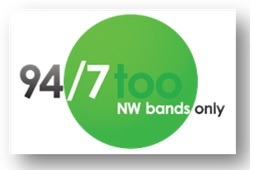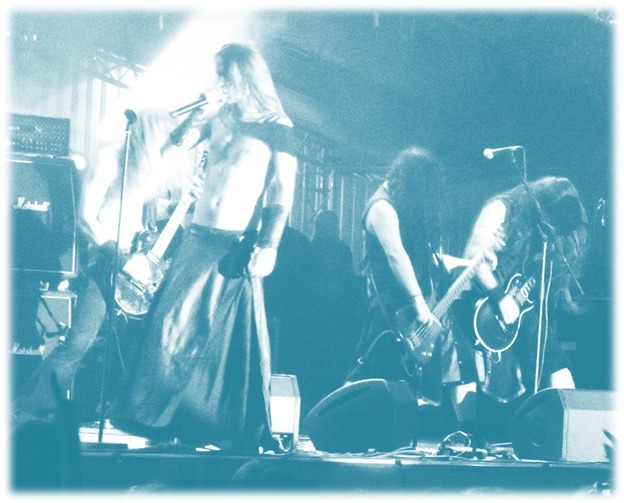How often has someone in the upper regions of corporate radio uttered (or at least thought) the title of today’s post?
There have been all sorts of audio innovations over the past two decades that consumers now enjoy as a part of their entertainment experience. Whether it was Pandora picking the next cool song, Shazam instantly identifying it, or Spotify allowing us to make our own playlists, these innovations have enhanced the ways in which consumers interface with the music they love. And broadcast radio companies ould have created these concepts – or at least could have bought them before they started to become more mass appealing.
Mark Zuckerberg’s purchase of Instagram and Apple’s acquisition of Beats Music are both testaments to the importance of partnerships and growth by employing a purchasing strategy in their respective quests to stay cutting edge, profitable, and relevant. These moves are “addition by addition,” and in the case of both mega-companies, they are charged by their stakeholders with staying ahead of the rapidly changing game.
That’s why it makes you wonder if many local radio stations simply are missing the boat on the one franchise they inherently own…and that’s local.
 Futurologist James Cridland tweeted out a story the other day about a retired IT guy in Canada who has created “Edmontunes” – a streaming channel that is exclusively dedicated to local artists and bands from the Edmonton, Alberta, environs.
Futurologist James Cridland tweeted out a story the other day about a retired IT guy in Canada who has created “Edmontunes” – a streaming channel that is exclusively dedicated to local artists and bands from the Edmonton, Alberta, environs.
There’s nothing breakthrough here – this two year-old station is comprised of 400 songs in a box, and now its creator, Larry Travis, has acquired a mixing board, mics, and cables so he can record area bands for his streamcast.
It’s not as if 90% of radio stations in the U.S. (or Canada) couldn’t technically create their own local version of this by Monday. But that’s the point. It took a former security analyst with a sense for the importance of local music in his town to put Edmontunes together. Anybody could have done it, but he did it.
So why aren’t more broadcasters creating their own proprietary local music channels that showcase the artists and bands, while serving the music fans of their local communities? In a world of global streaming options, the knowledge, sensitivity, and passion of radio people who know their hometown streets, clubs, bars, and garages is unparalleled and can’t be trumped by a global pure-play. Local radio teams ought to be the ones building these streaming stations, as well as putting them on HD2 channels so that the growing number of drivers of new vehicles equipped with this technology can enjoy their hometown music heroes while they cruise around town.
 In fairness, there are broadcasters who have figured out what Larry Travis sensed about Edmonton. KNRK in Portland has had a second streaming/HD channel devoted to Pacific Northwest bands for several years. RIFF2 in Detroit has also been focused on local Motor City jams since HD Radio came to market. But these examples are few and far between, and that’s why retired computer guys like Travis end up putting these local music channels together.
In fairness, there are broadcasters who have figured out what Larry Travis sensed about Edmonton. KNRK in Portland has had a second streaming/HD channel devoted to Pacific Northwest bands for several years. RIFF2 in Detroit has also been focused on local Motor City jams since HD Radio came to market. But these examples are few and far between, and that’s why retired computer guys like Travis end up putting these local music channels together.
Now I know what you’re thinking – who’s going to pay for these channels? If radio companies can’t monetize them, what’s the point of launching them?
Well, even if you look past the value of building great local brands and audiences and connecting with communities, local music Internet stations are still a worthy endeavor that broadcasters should be considering.
But perhaps the bigger question is why do we assume these local music-centric channels couldn’t generate solid revenue before this year is out?
It’s interesting that Radio Ink is now in the process of highlighting “Superstar Sellers” in their current issue – radio sales reps from around the country who are at the top of their game. So let’s hold a real sales contest – not one that asks reps to sell the most 30s and 60s or package the most Q1 sales trips to Mexico. How about we hold a competition to see who can actually generate the most revenue for the cluster’s local music streaming/HD2 channel, using small local businesses, bars, clubs, music stores, venues, and other related retailers who also have a stake in the community?
Whether you’re in Detroit, Des Moines, Duluth, or Dayton, professionals from radio, retail, and the music communities are in it together. Why not partner to create an outlet that’s a win-win-win for all concerned?
And if that means working the local high schools, community colleges, and universities to reach out to fledgling musicians, singers, and bands, what’s so bad about that? Every garage band has parents in the demo, and in the process of starting local music initiatives, radio just might rekindle its awareness among the tough-t0-reach Millennials that we read so much about.
The radio broadcasting industry has been stuck in this chicken/egg muck for more than a decade. On the one hand, why should we create something our salespeople can’t sell? On the other, why should we try to sell something that sounds unprofessional, is poorly promoted, and has no listeners?
At some point, broadcasters have to come to the realization that the future is the past – that what got radio to the dance way back when was local, community ties. And that in a world of Sirius/XM, Pandora, and Spotify, that same marketplace may be even more viable today.
That is unless we want a retired IT security guy up in Edmonton to beat us to the punch.
- What To Do If Your Radio Station Goes Through A Midlife Crisis - April 25, 2025
- A 2020 Lesson?It Could All Be Gone In A Flash - April 24, 2025
- How AI Can Give Radio Personalities More…PERSONALITY - April 23, 2025





Great article. From your mouth to the President, GM, GSM, and PD’s ears.
Thanks, Amelia. Let’s hope so! Thanks for taking the time to comment.
Fred,
Great idea. Our Classic rocker has had a show on the air for over a year now called The Garage, Sunday nights at 8 central. We have a ton of talented artists through here all the time and shoot some cheap(but great!) video in our small air studio. We also post the shows as podcasts after they play on air. They are on our site as well as iTunes. I love the energy and enthusiasim that local bands and artists bring to our station. And the audience loves that we set aside a litle time to showcase people from the Chicago area. I see the benefits both in audience credibility and revenue as we do have the show sponsored.
Jack
There’s always been a lot of value to aiming the lens at the local community, as you know, Jack. Thanks for sharing the story and for reading our blog.
Hey Fred. Glad you like my idea! 🙂 It is something that, technically, is easy to do, but isn’t popular since it is hard to monetize. That is a secondary consideration for me. I’m doing it for my local musician friends so that the world can hear them. Eventually, if the concept is deserving, the money will come… First steps are to build a strong grass roots foundation…
Larry, I give you all the props and credit in the world for doing this, and as I pointed out in the post, there are many in radio far better equipped to put this on the air AND sell it. But in the main, that’s not happening.
It has become all too common during the past few years that many of the best radio ideas are coming from people who don’t work in radio.
Imagine what you could do with Edmontunes if you had the backing of a radio station, a cluster, or a company.
I totally “get” that you’re in it for the love of the game, and that’s all the more impressive. But your hobby – and I mean that respectfully – is actually a potential pathway for local radio’s success. It is truly a big idea. Congrats on getting there first, and I’m sure there are many in Alberta who are very thankful for what you’re doing.
Rock on!